Building life from scratch: Meet the people fleeing the frontline in Ukraine
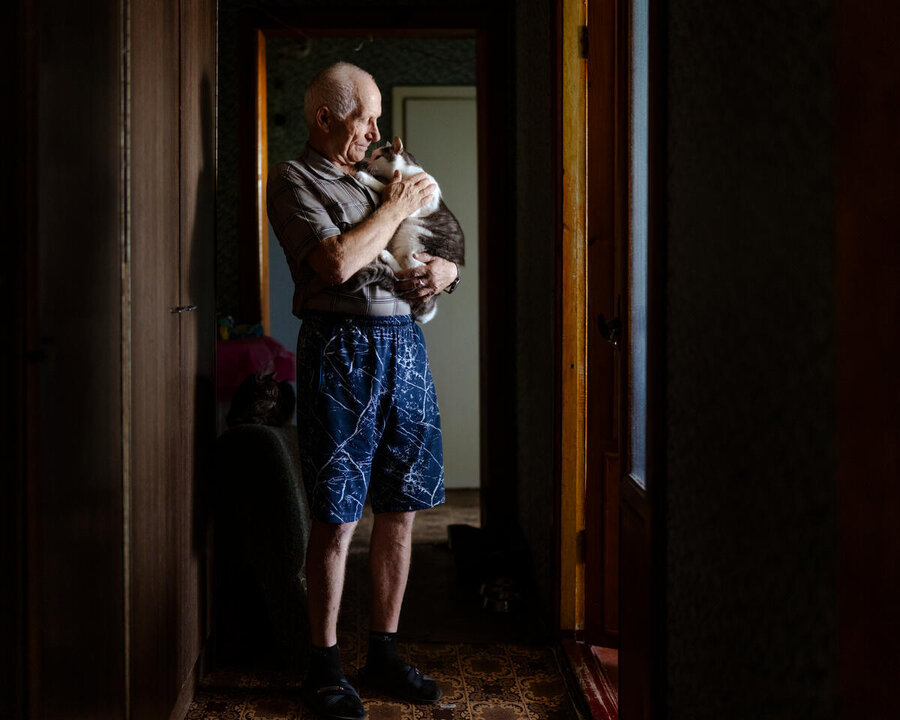
Some evacuees arriving in Pavlohrad transit centre – silhouetted as they line up in the thick morning fog – have no documents. Many do not know where they will stay for the night. Most look shaken by the stress of having had to gather belongings hastily before boarding an evacuation bus near the frontline.
“Nobody wants to leave, to abandon home, and I did not want it either,” says Viktor, who for 25 years worked as a coal miner in Bilytske, just 10km north of Pokrovsk – the embattled city in Ukraine’s Donetsk region
Less than 100km to the east of Pavlohrad, the thunder of tanks and artillery, the buzzing of drones had encroached on land that he and other evacuees had hoped would stay safe.
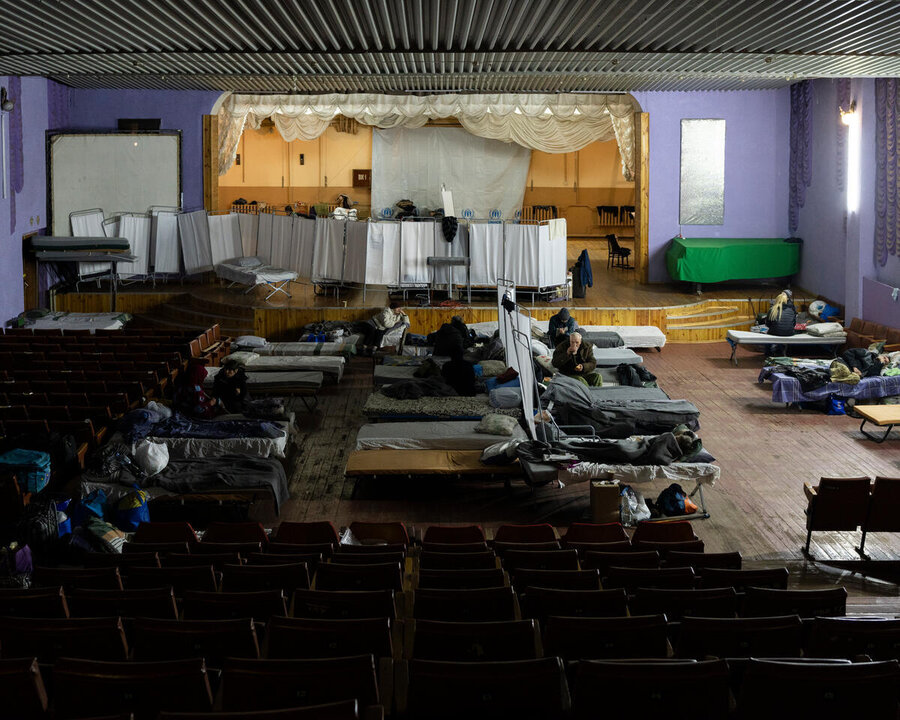
“We’d been waiting and hoping, but the fighting got closer and closer. Then it reached our village,” he adds.
Viktor, who lost his wife in 2023, is among the thousands who pass through four transit centres in the eastern regions of Ukraine every month.
With support from the European Union, the World Food Programme (WFP) distributes ready-to-eat food packages to everyone making their way through the transit centres as they move to safer areas.
Each kit contains ten cans of nutritious meals with porridge, protein and vegetables, as well as two loaves of bread – enough food for five days.
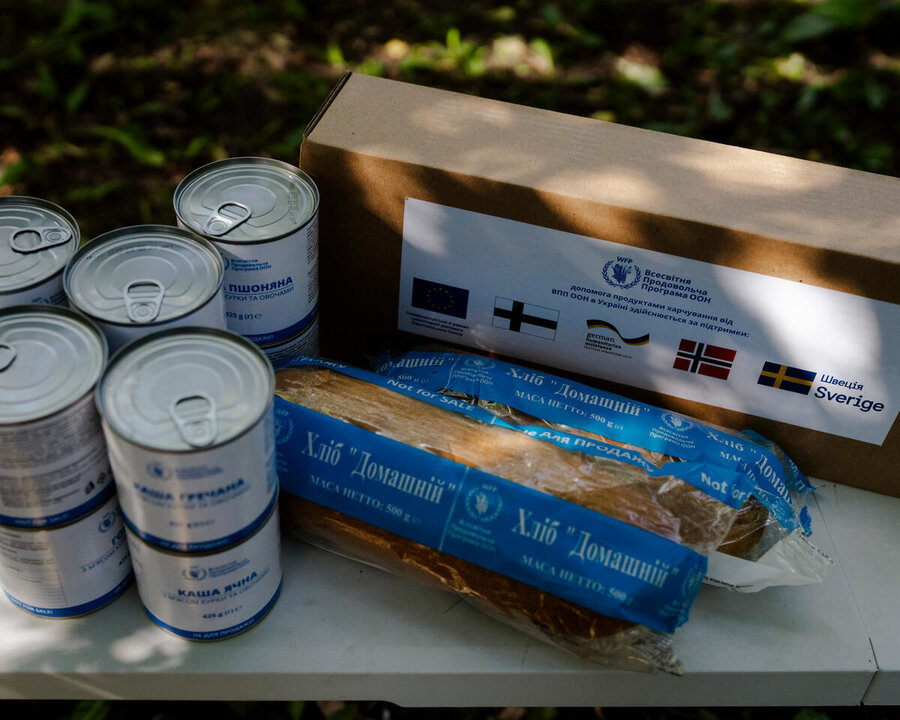
Besides this immediate support, people arriving at the transit centres receive around US$260 in cash support over three months. With this, they can buy essential items such as food, hygiene products and medicine.
Viktor wonders when he’ll be able to go home and begin rebuilding his former life.
“I had a piece of land I was cultivating. I am very connected to the land,” he says. “Life was good – we had a house, a garden, an apartment, a car.
“I remember all the furniture, the home decorations that my wife and I chose together.”
Before he left Pokrovsk, Hennadiy had no electricity and running water, living under constant shelling. “We took water from the wells. If it got dark, I went to sleep – what else could I do?” he says.
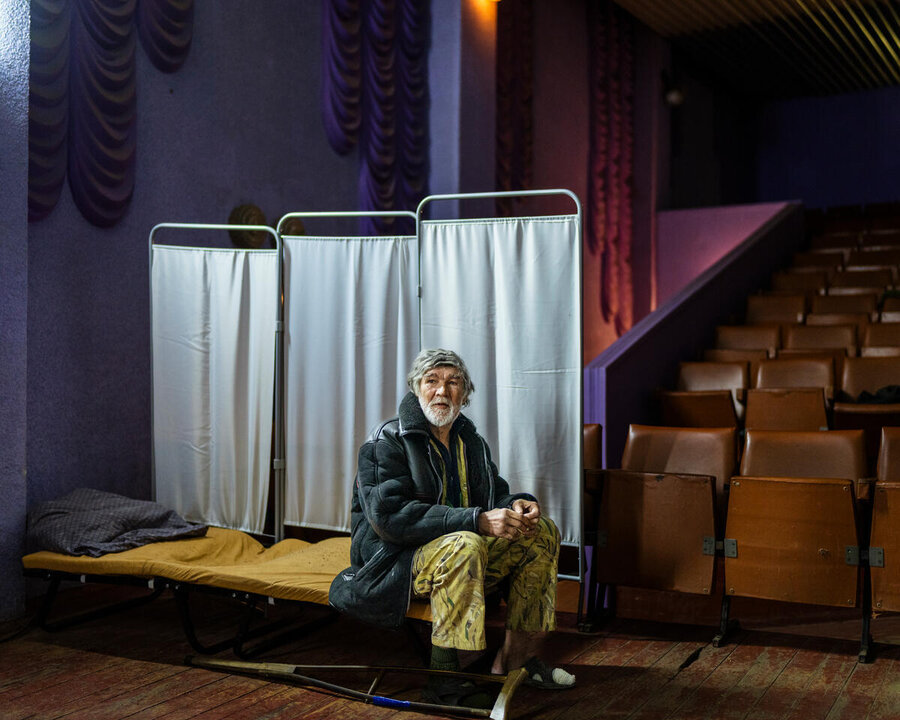
To afford food, he took casual jobs such as repairing stoves or bricklaying. But then the explosions got louder and louder, until the day they shook his walls and shattered his windows. His injured leg was severely infected, he eventually evacuated Pokrovsk on crutches, hoping to find treatment somewhere.
Hennadiy says he left with every intention of returning, “But they’ve told me the house is gone. There is nothing left.”
Evhenia is from Dobropillia, another village near Pokrovsk. She, too, is rebuilding her life from scratch. She and her colleagues followed as the business they worked for shifted to a safer location.
“It was very painful for me to abandon everything,” she says. “I am a homebody, it’s extremely difficult for me to be away for too long, even when I am visiting relatives and friends. But rockets started to land very close, and it was just too dangerous to stay.”
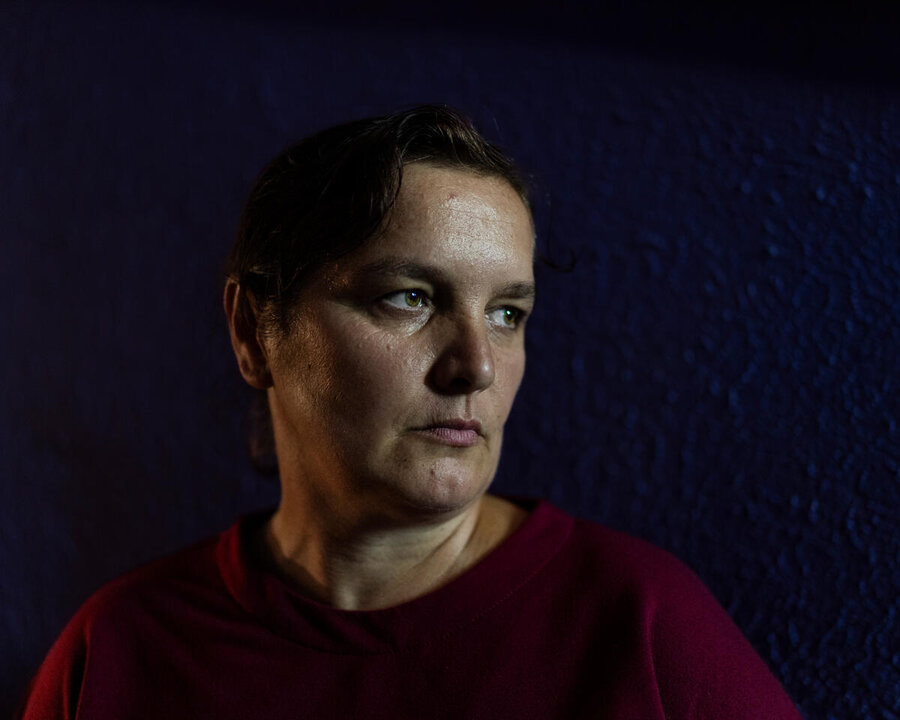
While Evhenia’s pulled herself through, she is not sure about keeping her job. The cash assistance she receives serves as a small assurance: just enough money to buy food and other essentials as she embarks on a recovery and considers her options – though she has “no thoughts about the future yet”.
“I just want to spend some time at peace, away from shelling and explosions,” she says. “Then I can decide what to do next. Here at the transit centre, I let myself be taken around like a child. I am grateful that I am not alone in this situation.”
As he reflects on how his life has changed, Viktor says: “The only thing I want is for peace to come as soon as possible, and the rest will find its way.
“I want to go back home, if it’s not ruined. And if I have to stay here – let it be, maybe there will be something else. Life will show”.
Since 2022, WFP has distributed the equivalent of almost 4 billion meals in Ukraine through food and cash assistance programmes.
